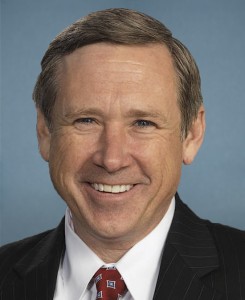Kirk bill increases access to summer meals for Illinois kids
Chronicle Media — August 10, 2015U.S. Senator Mark Kirk (R-Ill.) introduced the Hunger Free Summer for Kids Act (S.1966), legislation that will make child nutrition programs more efficient and flexible in order to reach children in need during the summer months when school meals are not available. Nationwide, nearly 16 million children face hunger on a daily basis, and one out of five children in Illinois go to bed hungry. Introduced with Senators John Boozman (R-Ark.), Mitch McConnell (R-Ky.), Sherrod Brown (D-Ohio), Michael Bennet (D-Colo.) and Joe Donnelly (D-Ind.), S. 1966 updates the 1975 Summer Food Service Program (SFSP) operated by the U.S. Department of Agriculture so that instead of a “one size fits all” method, states like Illinois will instead have the ability to choose which methods work best for their communities.
“Updating the summer meals program to provide greater access to children in need isn’t just the right thing to do, it’s the smart thing to do for Illinois. Regulation shouldn’t stand in the way of kids having year-round access to safe, nutritious meals,” Senator Kirk said.
“The Greater Chicago Food Depository strongly endorses the Hunger Free Summer for Kids Act. In Illinois, only 14 percent of children in need are receiving a summer meal. This bill would allow us to overcome barriers to reach thousands of low-income children across our community with proven, effective solutions. We urge the Senate Committee on Agriculture to incorporate these policies into Child Nutrition Reauthorization and close the summer hunger gap for kids in Illinois and across the country,” said Kate Maehr, CEO and Executive Director of the Greater Chicago Food Depository.
“We can’t let a ZIP code determine if a hungry child has the food they need,” said Billy Shore, founder and CEO of Share Our Strength. “This legislation gives states the options to feed hungry children more efficiently and effectively, whether they live in our cities, our rural areas, or our suburbs.”
In states like Illinois with communities compromised of both rural and urban areas, the one-size-fits-all approach for summer meals does not work. In 2013 Illinois had more than 2,200 summer meal sites, in which more than 1,300 were in the city of Chicago. However, only 12 percent of the nearly 800,000 children eating free or reduced-price school lunch utilized the sites to receive summer meals. For children that live in areas that have safety concerns, or for children that live far away from the meal sites, this feeding requirement limits the number of children that are able to utilize the program.
This legislation would provide states with two additional options for addressing child hunger during the summer by:
Authorizing summer Electronic Benefit Transfer (EBT) and providing eligible families up to $30 per summer month per child to purchase eligible food items. In United States Department of Agriculture (USDA) pilot programs, Summer EBT reduced the most severe forms of food insecurity for children by 33 percent.
Allowing states the flexibility to choose what makes the most sense in their communities by giving states the option to provide summer meals without a centralized feeding site when a certain condition exists such as a rural area is not eligible to operate open summer meals site, during a time of extreme weather and when there are public safety concerns.
— Kirk bill increases access to summer meals for Illinois kids —




